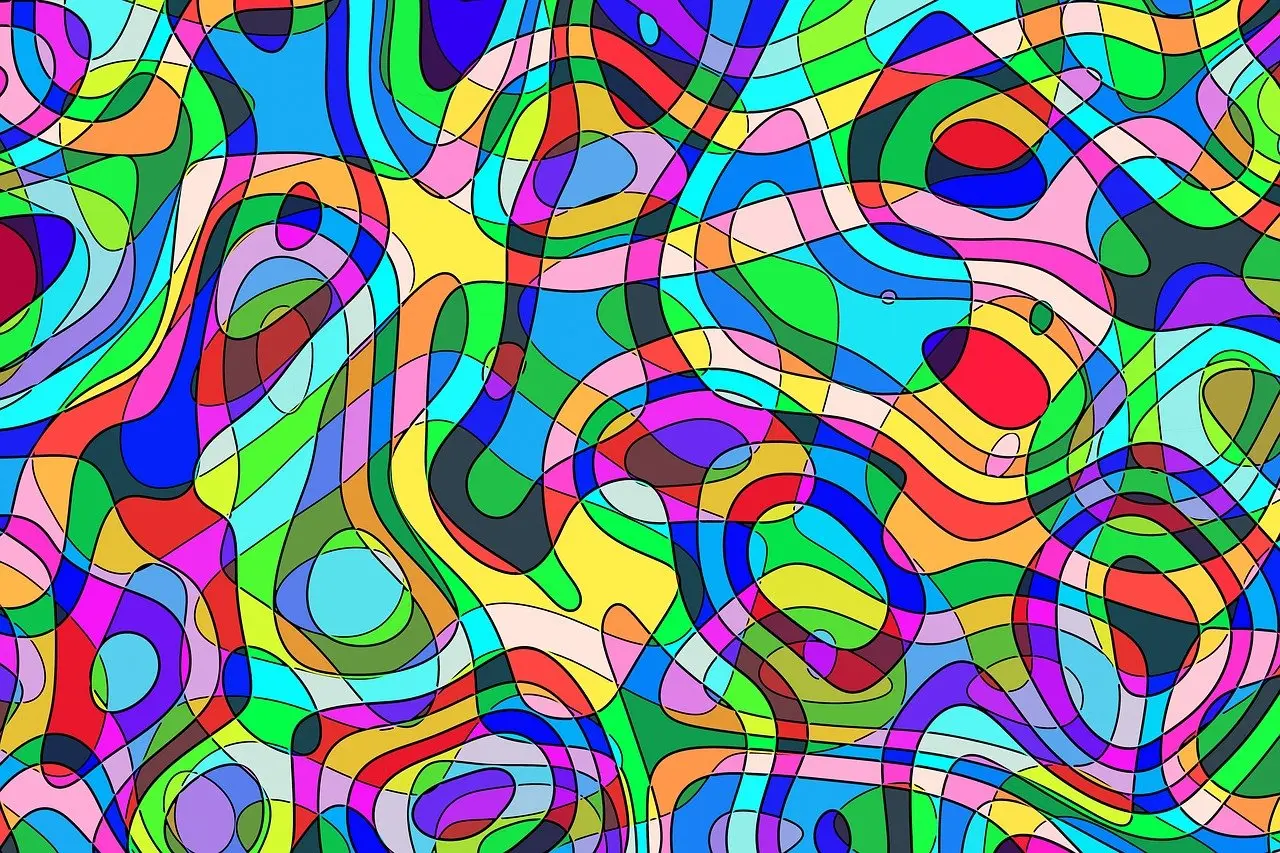What Is the Myth of the Succubus?

Looking for more amazing products? Check out our online store and explore our collection here! Happy shopping!
Before diving in, please note: This post is for informational purposes only. If you’d like to know more about how we approach topics, feel free to check out our friendly Disclaimer Page.
Hey there, amazing readers! 
We’re committed to delivering quality posts, and your support (even just sticking around despite the ads) means everything to us. So, bear with us, and thanks for helping us keep the good vibes rolling. Now, on to the fun stuff!
TRANSLATE BUTTON AT THE END OF THE ARTICLE
A Quick Overview
The myth of the succubus is one that has tantalized and terrified humanity for centuries.
These enigmatic figures are often depicted as seductive women who lure men into their traps, typically in the dead of night.
But what exactly is the story behind these alluring demons?
In this article, we’ll explore the origins, cultural interpretations, literary representations, and psychological implications surrounding the succubus myth.
Let’s dive into this captivating subject together!
Understanding the Succubus: A Brief Introduction
The succubus has long been a staple in folklore and mythology, characterized as a female demon who preys on men.
Traditionally, the succubus would take the form of an attractive woman, using her charm and allure to seduce her victims, often leading to their demise or spiritual deterioration.
This figure has evolved over time, but the core idea remains the same: a creature that embodies both desire and danger.
A key element of the succubus legend is its connection to sleep and dreams.
Many stories revolve around the idea that a succubus visits men in their sleep, engaging in sexual encounters that leave them physically weakened or mentally distressed.
This connection to the nighttime experience makes the succubus particularly frightening, as it plays on our fears of vulnerability while we’re at our most defenseless.
The myth of the succubus does not exist in isolation.
It is linked to a broader context of female demons and spirits across various cultures.
The succubus, along with its male counterpart, the incubus, has been used to explain phenomena like sleep paralysis, nocturnal emissions, and even dreams that go awry.
It’s a compelling narrative that has captivated imaginations for generations.
The Origins of the Succubus Myth in Ancient Lore
To understand the succubus myth, we must journey back to ancient times.
The earliest records of female demons date back to Mesopotamia and the demon Lilith, who is often associated with seduction and chaos.
In these ancient texts, Lilith is portrayed as a figure who refuses to submit to male authority, choosing instead a path of independence that leads her to prey on men.
In medieval Europe, the concept of the succubus began to take shape more concretely.
During this time, the church started to view female sexuality as dangerous and sinful, paving the way for the succubus to be interpreted as a harbinger of moral decay.
This association was particularly potent during the witch hunts, where women who were seen as sexually liberated were frequently accused of being succubi in disguise.
The succubus myth also found its way into the writings of various medieval scholars and theologians.
They used the figure of the succubus to warn men against the perils of lust and temptation.
The narrative was clear: to engage with a succubus was to invite disaster and eternal damnation.
How Different Cultures Interpret Succubus Legends
The interpretation of the succubus varies significantly across cultures.
In Western traditions, the succubus is typically a malevolent force.
However, in some Eastern cultures, the idea of a female spirit that seduces men can take on a more nuanced form.
For instance, in Japanese folklore, the "Yuki-onna" is a spirit that can be both benevolent and malevolent, embodying a complex relationship with male dreamers.
Similarly, in African folklore, we find spirits like the "Mami Wata," who possesses both seductive and protective qualities.
These figures highlight the multifaceted nature of female spirits in mythology, challenging the single-dimensional view of the succubus as purely evil.
There are also cultures where the idea of a succubus overlaps with fertility and femininity.
In some Native American myths, women are celebrated for their power and allure, while in others, certain spirits may have similar characteristics to the succubus but serve different purposes, such as providing guidance or protection.
This cross-cultural examination reveals that the succubus is not just a one-dimensional villain.
Instead, she can represent many aspects of femininity, from seduction and temptation to power and independence.
The Succubus in Literature: A Captivating Figure
Literature has played a crucial role in shaping the image of the succubus throughout the ages.
From ancient texts to modern novels, the succubus has often served as a symbol of desire and danger intertwined.
The literary portrayals of succubi vary widely, reflecting societal attitudes toward women and sexuality at different times.
In the 18th and 19th centuries, Gothic literature brought the succubus to the forefront of popular culture.
Writers like John Keats and Edgar Allan Poe infused their works with themes of seduction, death, and the supernatural.
These authors recognized the emotional and psychological complexities involved in the succubus myth, creating characters that were both alluring and tragic.
The 20th century saw a shift in how succubi were portrayed.
With the rise of feminism, some authors began to reimagine these figures as sources of female empowerment.
Instead of merely being seen as temptresses, succubi became symbols of autonomy and strength, challenging traditional gender roles.
Modern works of fantasy and horror have also contributed to the myth’s evolution.
Novels and series like "The Mortal Instruments" and "Supernatural" depict succubi in a more multifaceted manner, often as protagonists who struggle with their identities and navigate complex moral landscapes.
This shift has made the succubus a more relatable figure for contemporary audiences.
Popular Folklore: Tales of Seduction and Nightmares
Folklore surrounding the succubus is rich with stories that illustrate both fear and fascination.
Many tales recount harrowing encounters where men are visited by an alluring woman in the night, leading to a series of disastrous consequences.
These anecdotes function as cautionary tales, warning against the dangers of succumbing to temptation.
Some well-known legends include tales of men waking up in the morning feeling exhausted and weak after vivid dreams of passionate encounters.
These stories often highlight the moralistic undertones related to lust and the consequences of surrendering to one’s carnal desires.
In more modern times, the myths surrounding the succubus can be found in urban legends shared around campfires or whispered among friends.
Stories of "sleeping with a succubus" continue to circulate, reflecting our enduring fascination with the supernatural and the allure of the forbidden.
Interestingly, the succubus myth often intermingles with stories of hauntings and spirits, blurring the lines between reality and the supernatural.
These tales serve as a reminder of how deeply entrenched the succubus is in our collective consciousness, continually shaping our views on love, desire, and fear.
The Psychological Interpretations of Succubus Encounters
The phenomenon of succubus encounters has sparked considerable interest among psychologists and researchers.
Many believe that these experiences can be tied to sleep disturbances, such as sleep paralysis, where individuals may feel a presence in the room during the night.
This scientific perspective sheds light on how cultural myths can arise from genuine human experiences.
During sleep paralysis, people often report feeling pressure on their chest, a sensation that can be misinterpreted as a demonic entity.
Merging the psychological with the supernatural, these experiences may be explained in terms of fear, anxiety, and the body’s response to stress.
Additionally, the succubus myth can symbolize deeper psychological struggles, including issues related to intimacy and sexual desire.
For some, the succubus represents a longing for connection or the fear of vulnerability.
Engaging with this myth can serve as a way to explore our own emotional landscapes, revealing insecurities and desires we may not fully understand.
This psychological lens also allows us to analyze how societal norms influence our perceptions of sexuality.
The portrayal of the succubus often reflects underlying anxieties about female sexuality and the power dynamics involved.
Studying these narratives can provide valuable insights into how we view relationships and desire.
Modern Representations of Succubi in Movies and Media
In the digital age, the succubus has found a new lease on life, appearing prominently in movies, television series, and video games.
These modern portrayals often deviate from traditional depictions, offering fresh interpretations that resonate with contemporary audiences.
Films such as "The Love Witch" and series like "Charmed" and "Buffy the Vampire Slayer" use the succubus archetype to explore themes of empowerment, love, and identity.
The characters often challenge societal norms and reveal the complexities of relationships.
Moreover, video games like "Dante’s Inferno" and "Castlevania: Lords of Shadow" have incorporated succubi as formidable foes.
These characters often embody strength and cunning, presenting them as more than mere temptresses but as powerful beings in their own right.
This transformation in representation reflects changing attitudes toward sexuality and femininity.
Characters are no longer just vessels of temptation but rather individuals with stories, motivations, and struggles.
This evolution keeps the myth of the succubus alive and relevant in popular culture.
The Connection Between Succubi and Sleep Paralysis
As previously mentioned, the connection between succubi and sleep paralysis is a fascinating topic that has intrigued both scientists and folklore enthusiasts alike.
Many people report experiencing sleep paralysis accompanied by the sensation of an unseen presence, often described as a woman.
This has contributed to the enduring belief in succubi.
During sleep paralysis episodes, individuals may feel an overwhelming sense of dread, which can be exacerbated by the feeling of being unable to move or speak.
For many, this experience is terrifying and can lead to the belief that they have encountered a supernatural being.
Some researchers suggest that these episodes may stem from stress, sleep deprivation, or irregular sleep patterns.
Understanding these factors can help demystify the experience and separate psychological realities from urban legends.
Yet, despite the scientific explanations, the allure of the succubus myth remains strong.
It taps into our fears of intimacy and vulnerability, allowing us to explore the darker aspects of human desire while providing a narrative framework for experiences that can otherwise feel inexplicable.
Debunking Myths: Are Succubi Real or Just Fiction?
After exploring the depths of the succubus myth, one might wonder: are they real or simply figments of our imagination?
The answer is complex.
While the stories of succubi have certainly captured our collective psyche, there’s no empirical evidence to support their existence.
What we can acknowledge is that the succubus serves a purpose in our understanding of human behavior, relationships, and sexuality.
The legends allow us to articulate fears and desires that we may find difficult to express in everyday life.
So, if you’re ever feeling particularly drained or anxious after a vivid dream, it might be tempting to blame a succubus.
However, it’s more likely that your body is just responding to stress or sleep deprivation.
In a way, succubi are real in the stories we tell and the lessons we learn from them.
They reflect societal attitudes and anxieties regarding female sexuality, desire, and power.
Regardless of their physical reality, succubi provide a rich tapestry of cultural lore that continues to provoke thought and spark conversation.
The Female Empowerment Angle in Succubus Stories
Interestingly, as we’ve seen in modern interpretations, some narratives have shifted to view the succubus through a lens of female empowerment.
Instead of merely being a seductress who leads men astray, the succubus becomes a symbol of autonomy, strength, and resilience.
In these contemporary stories, succubi are often portrayed as complex characters who embrace their sexuality and power.
These narratives challenge the traditional demonization of female sexuality, offering a more nuanced view that celebrates autonomy and self-expression.
This shift is particularly relevant in today’s society, where discussions about consent, agency, and sexual empowerment are at the forefront.
By reclaiming the succubus myth, storytellers empower women to embrace their desires without stigma or fear.
Such portrayals invite us to rethink our perceptions of female figures in mythology and folklore.
Rather than relegating them to roles of mere seduction, we can celebrate their strength, complexity, and agency.
Why the Succubus Continues to Fascinate Us Today
The enduring fascination with the succubus can be attributed to its multifaceted nature.
This figure allows us to explore themes of desire, fear, and empowerment in a society that constantly grapples with issues related to gender, sexuality, and power dynamics.
Additionally, the succubus taps into our primal fears of vulnerability and intimacy.
The idea of a seductive being invading our dreams evokes strong emotions that resonate with many of us.
We may not experience a literal succubus, but we can certainly relate to feelings of attraction and fear.
The modern world continues to reinvent the succubus myth, ensuring that she remains relevant in popular culture.
She embodies the complexities of relationships, the struggles of identity, and the interplay of power dynamics in human interactions.
As we engage with these stories, we connect with our own experiences of love, loss, desire, and empowerment.
The succubus serves as a mirror, reflecting our struggles and triumphs while inviting us to engage with our fears and desires more openly.
Conclusion: Embracing the Myth of the Succubus
The myth of the succubus is rich, layered, and ever-evolving.
From ancient lore to modern interpretations, these figures have challenged societal norms and sparked conversations about desire, power, and femininity.
Whether viewed as dangerous seductresses or symbols of empowerment, succubi invite us to engage with our fears and desires in a profound way.
As we navigate the complexities of love and relationships, the succubus myth remains a powerful reminder of the delicate balance between temptation and morality.
It reminds us that the stories we tell about succubi reflect not just our fears but also our hopes for autonomy and empowerment.
So, the next time you hear a tale of a succubus, remember that these myths are not just about demons in the night.
They are about the human experience, inviting us to embrace our desires while remaining mindful of the power dynamics at play.
After all, the legend of the succubus is as much about seduction as it is about strength, and that’s what keeps us coming back for more!

The Enlightenment Journey is a remarkable collection of writings authored by a distinguished group of experts in the fields of spirituality, new age, and esoteric knowledge.
This anthology features a diverse assembly of well-experienced authors who bring their profound insights and credible perspectives to the forefront.
Each contributor possesses a wealth of knowledge and wisdom, making them authorities in their respective domains.
Together, they offer readers a transformative journey into the realms of spiritual growth, self-discovery, and esoteric enlightenment.
The Enlightenment Journey is a testament to the collective expertise of these luminaries, providing readers with a rich tapestry of ideas and information to illuminate their spiritual path.
Our Diverse Expertise
While our primary focus is on spirituality and esotericism, we are equally passionate about exploring a wide range of other topics and niches 

To ensure we provide the most accurate and valuable insights, we collaborate with trusted experts in their respective domains 
Our blog originally focused on spirituality and metaphysics, but we’ve since expanded to cover a wide range of niches. Don’t worry—we continue to publish a lot of articles on spirituality! Frequently visit our blog to explore our diverse content and stay tuned for more insightful reads.
Hey there, amazing reader! 
Check out our store here and take a peek at some of our featured products below! Thanks for being awesome!










